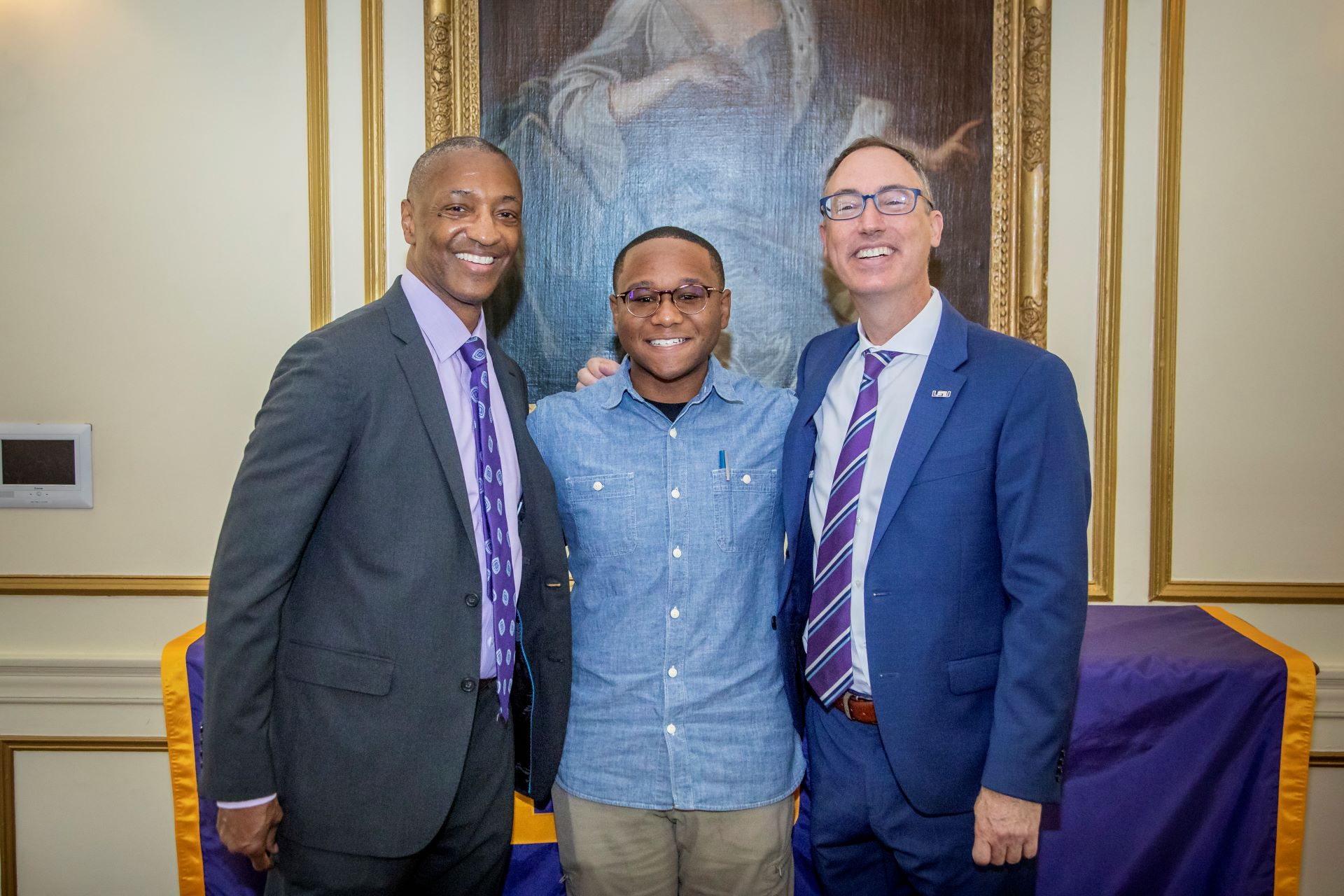Ogden Honors junior Antavion “Tay” Moore awarded prestigious Truman Scholarship for public service in rural community development
April 12, 2023

Ogden Honors College junior Antavion “Tay” Moore, who became LSU’s first John Robert Lewis Scholar in 2022, has been named a 2023 Truman Scholar — the most prestigious award for undergraduates who are pursuing careers in public service. Moore was one of 62 students selected for this award out of 705 candidates nationwide.
Truman Scholars demonstrate outstanding leadership potential, a commitment to a career in government or the nonprofit sector, and academic excellence. Each Truman Scholar receives funding for graduate studies, leadership training, career counseling, and special internship and fellowship opportunities within the federal government.
Moore, who is pursuing degrees in political science and music, credits his hometown for his passion for service. “Growing up in Ringgold [Louisiana] allowed me a front row seat to the issues facing rural communities in the South and sparked my passion for rural community development. If there's one thing that my experiences in 4-H, church, and college have taught me, it is that problems are simply opportunities for positive change and young people have the potential to make a difference in society,” said Moore.
As service and research are pillars of the Ogden Honors curriculum, Moore has been able to forge his desired path as a leader in public service using evidence-based solutions to create change that is meaningful to him and his community. “When I arrived at LSU amid the COVID-19 pandemic, I didn’t know what role I would have in progressing my hometown, and other rural places like it across the South, forward,” said Moore. “Being an honors student has allowed me to study specific Louisiana public policy issues (such as chronic poverty, healthcare access, and education quality); regularly participate in and lead service projects; network with current state nonprofit, government, and business leaders; and receive support to apply for conferences, internships, and fellowships. The students, faculty, and staff are family and truly make LSU feel like home.”
Moore is also Louisiana Service and Leadership (LASAL) Scholar, program that prepares Ogden Honors College students for leadership roles in Louisiana, particularly in the fields of public service, social justice, and environmental sustainability.
Under the guidance of Dr. Belinda Davis, Moore is researching the variation in Elementary and Secondary School Emergency Relief Fund (ESSER) spending priorities during the COVID-19 pandemic across rural, urban, and suburban schools in Louisiana and how those priorities affect education outcomes.
In his Truman application, Moore’s policy proposal suggests formally incorporating service-learning into Louisiana Department of Education curriculums to combat Louisiana’s high youth disconnection rate. Louisiana has one of the highest rates in the country of young people between the ages of 16 and 24 who are not in school and not working with rural youth in north Louisiana being the most vulnerable. His proposal cites numerous studies that suggest that incorporating service-learning (students identifying a local community problem/need and working alongside their teachers and community stakeholders to develop long-term solutions) into courses increases school attendance, academic performance, civic engagement, career development and social skills. “Through the experiences I have had in the 4-H program, I am a personal testament of this,” he noted.
“The best Truman Scholars are ‘change agents,’” said LSU Ogden Honors College Dean Jonathan Earle, “and Tay most definitely fits that bill. He has already done so much – with 4-H, ESSER, service learning, the Lewis Scholars – that I literally can’t wait to see what he does next. Tay will be a phenomenal Truman Scholar.
After graduation Moore plans to pursue a Master of Public Policy/Master of Divinity dual-degree program. His ultimate goal is to craft and advocate for rural Louisiana policies that maximize local municipality capacity, increase workforce development, and prioritize public education, while creating grassroots programming through nonprofit and religious organizations.